Find Help
More Items From Ergsy search
-
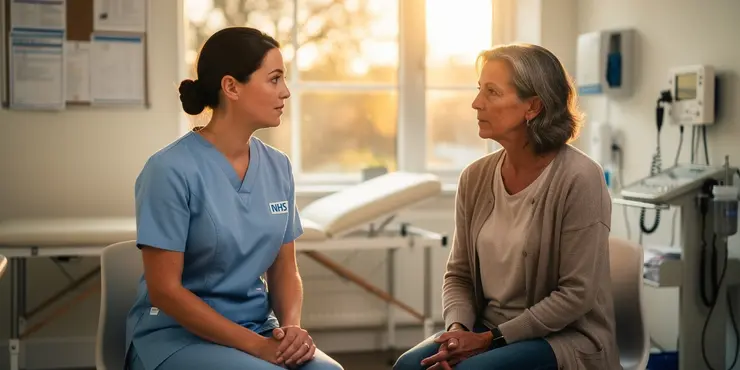
4 facts about blood cancer that you should know | NHS
Relevance: 100%
-
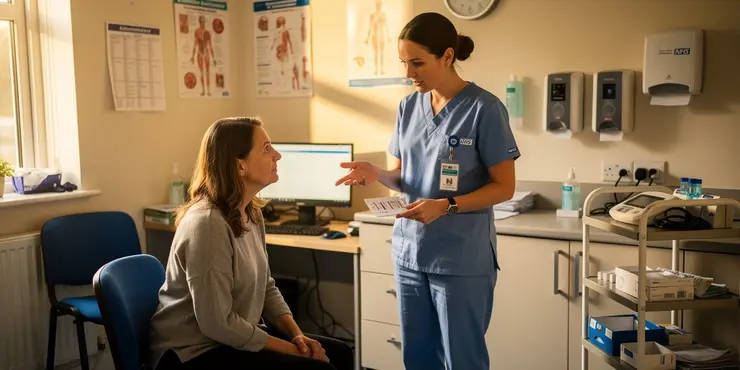
What is a fecal occult blood test?
Relevance: 80%
-

How is testicular cancer diagnosed?
Relevance: 74%
-
Blood Product Transfusions
Relevance: 73%
-
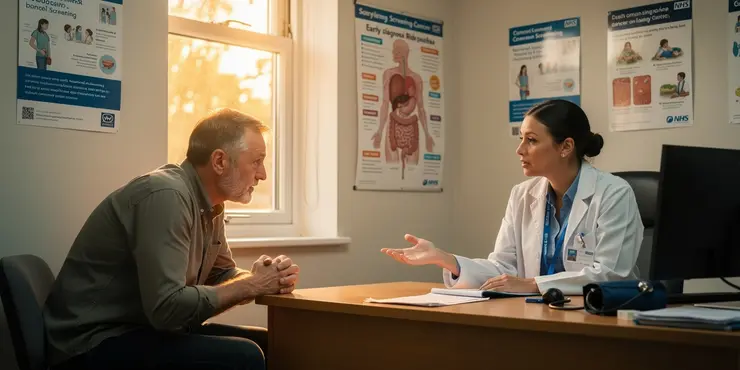
How is bowel cancer diagnosed?
Relevance: 73%
-
Why might someone need a blood transfusion?
Relevance: 73%
-
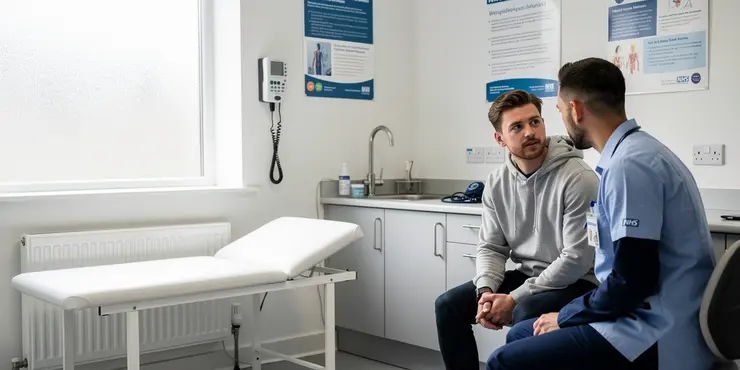
What are the stages of testicular cancer?
Relevance: 71%
-
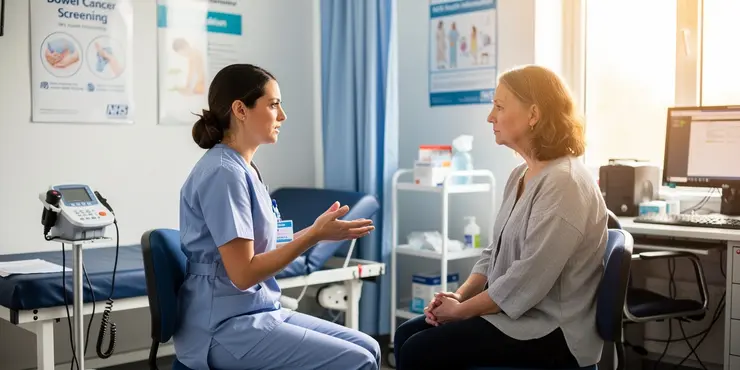
What kinds of cancer screening are available?
Relevance: 71%
-
What are some common reasons blood transfusions are needed?
Relevance: 71%
-
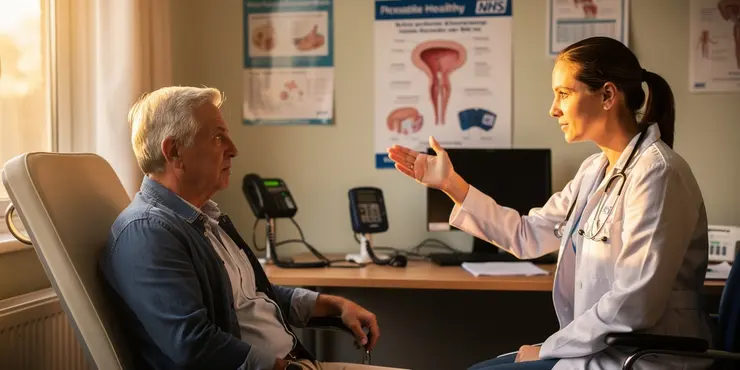
What is Prostate Cancer?
Relevance: 70%
-
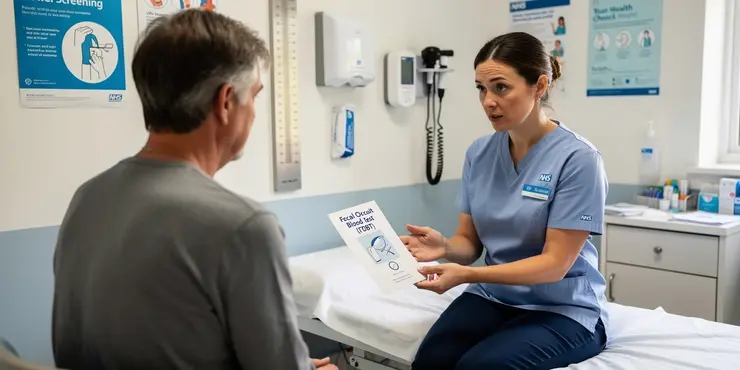
How does a fecal occult blood test (FOBT) work?
Relevance: 70%
-
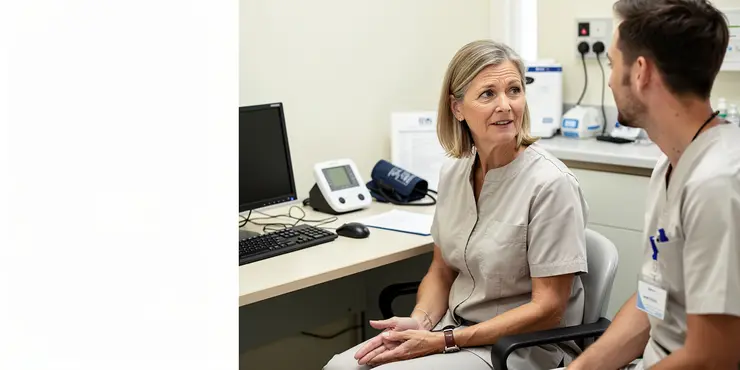
Ovarian Cancer
Relevance: 70%
-
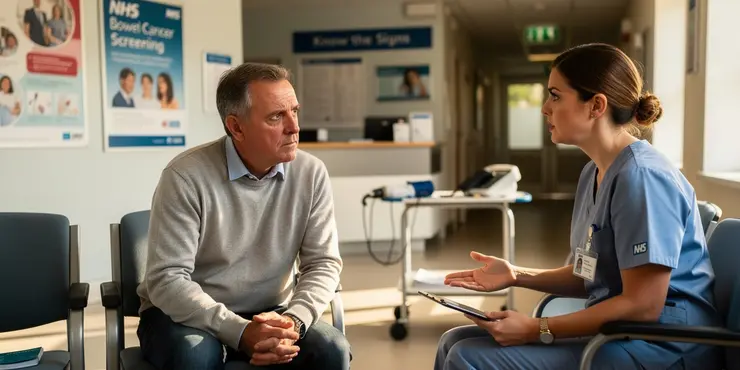
What is colorectal cancer?
Relevance: 69%
-
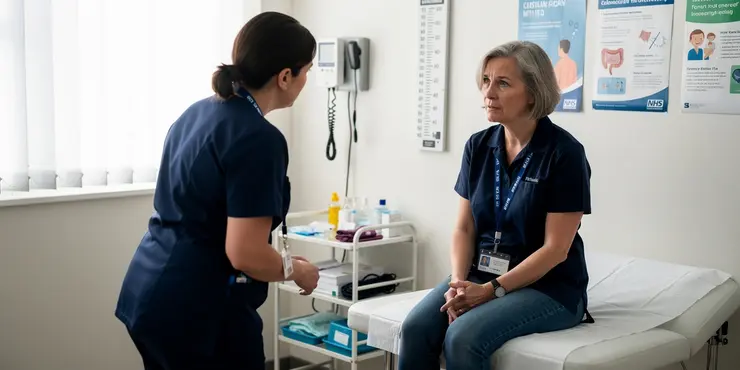
How can I test myself for colorectal cancer?
Relevance: 69%
-
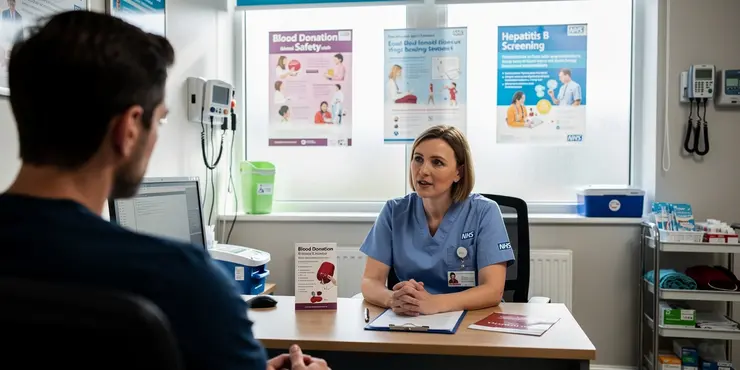
Is Hepatitis B a risk in blood transfusions?
Relevance: 69%
-
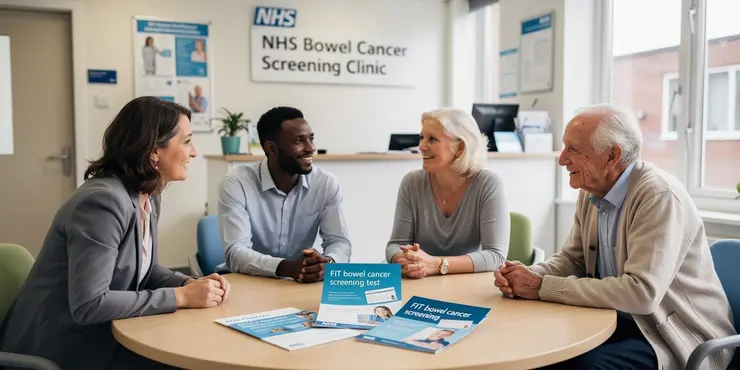
How to do the FIT bowel cancer screening test | Cancer Research UK
Relevance: 69%
-
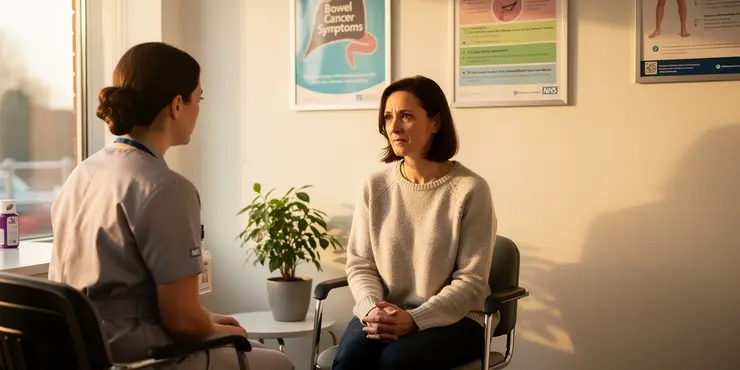
What is Bowel Cancer?
Relevance: 69%
-
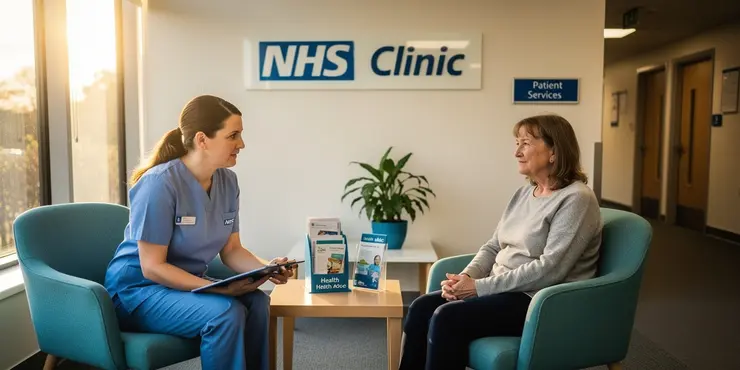
What is Cancer?
Relevance: 68%
-
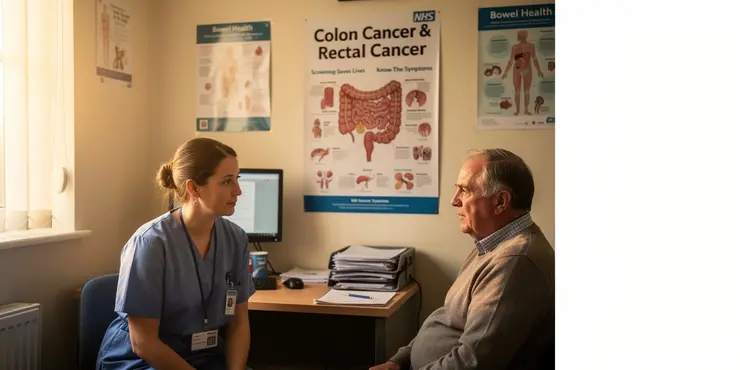
What is the difference between colon cancer and rectal cancer?
Relevance: 68%
-
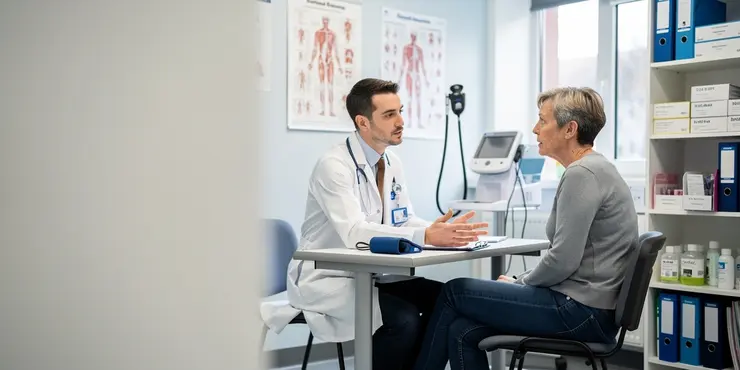
What is Pancreatic Cancer?
Relevance: 68%
-
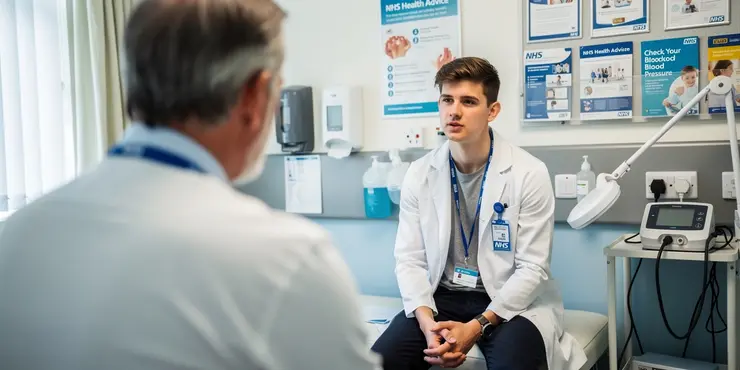
What is testicular cancer?
Relevance: 68%
-
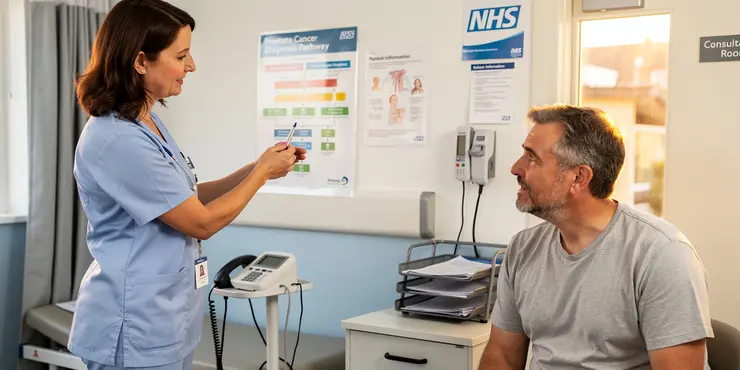
Prostate cancer diagnosis and tests
Relevance: 67%
-
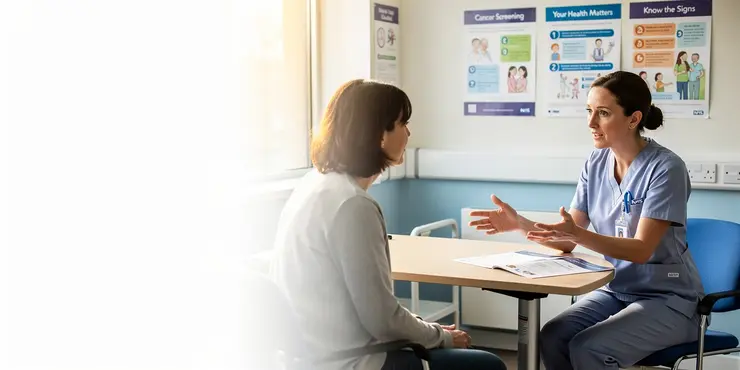
What is cancer screening?
Relevance: 67%
-
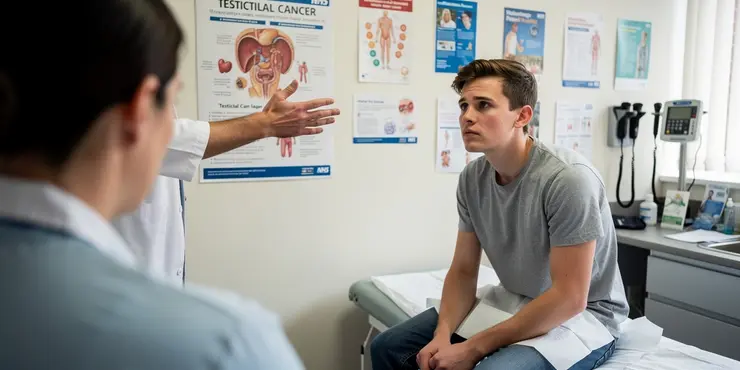
What is testicular cancer?
Relevance: 67%
-
What is testicular cancer?
Relevance: 67%
-
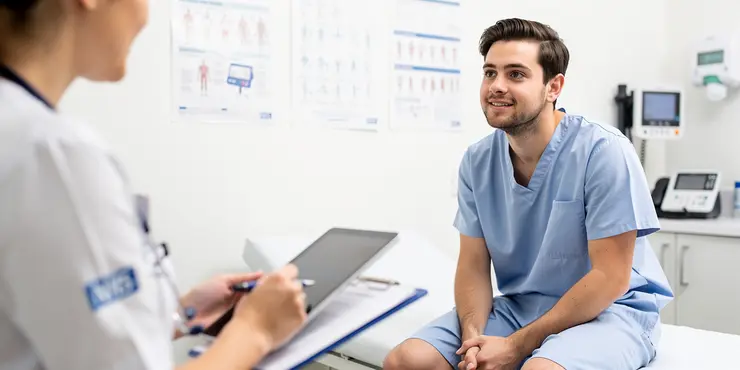
Is testicular cancer treatable?
Relevance: 66%
-
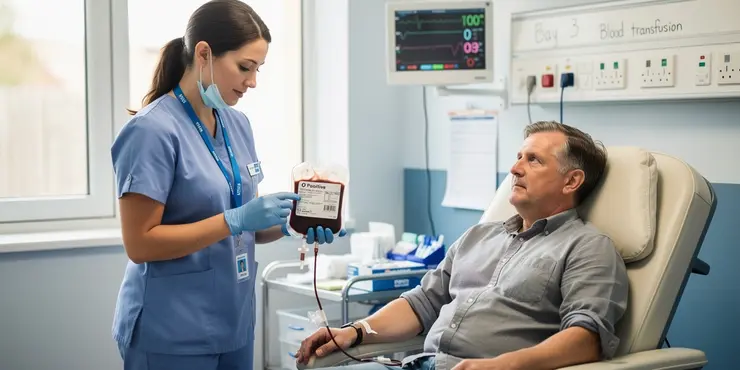
Blood Transfusion
Relevance: 66%
-
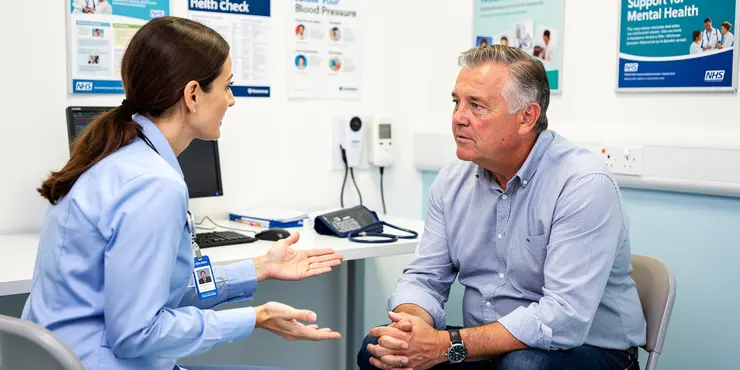
Living with prostate cancer
Relevance: 66%
-
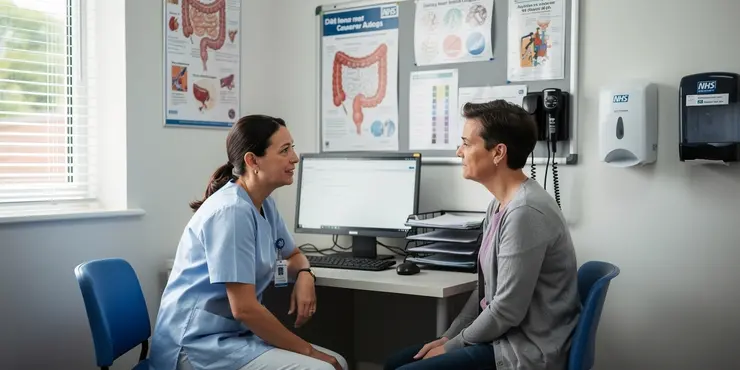
How is the stage of bowel cancer determined?
Relevance: 66%
-
What is a blood transfusion?
Relevance: 66%
-
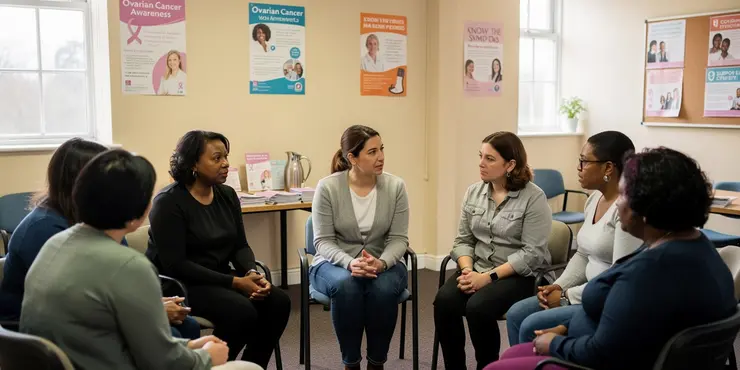
Raising awareness of ovarian cancer
Relevance: 65%
-
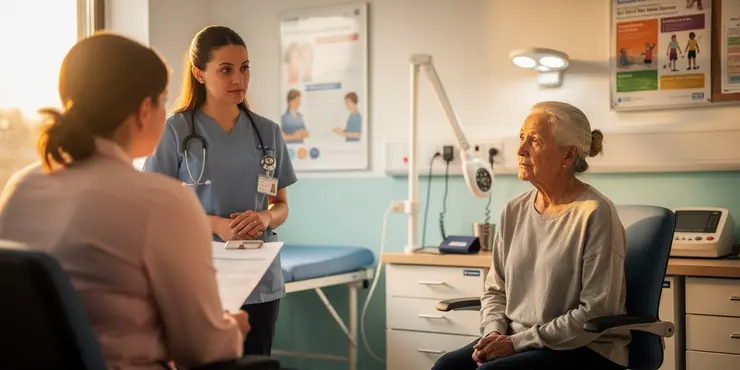
Bowel cancer - Symptoms and signs to look out for
Relevance: 65%
-
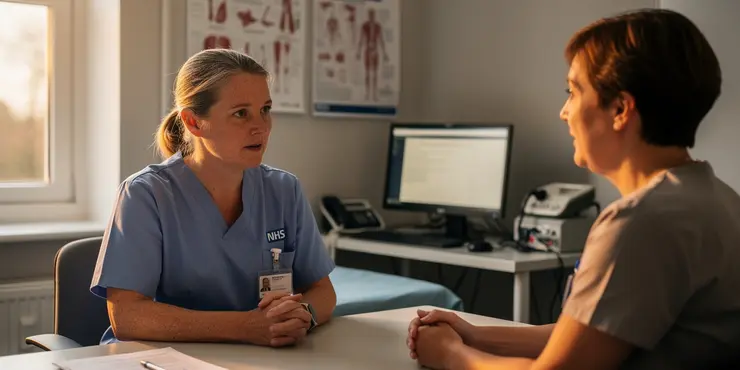
Endometrial Cancer
Relevance: 64%
-
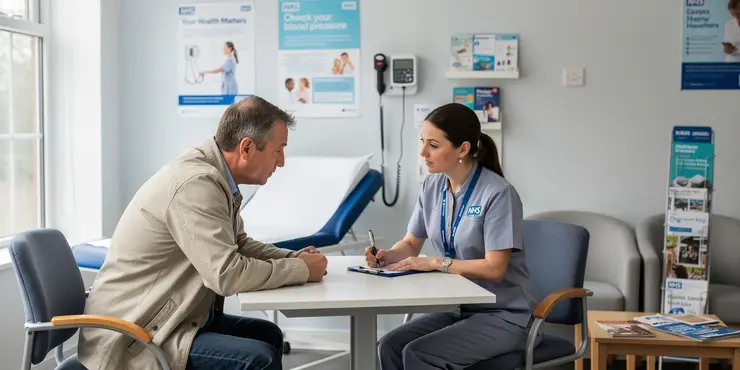
Is BPH the same as prostate cancer?
Relevance: 64%
-
Are there risks associated with home colorectal cancer tests?
Relevance: 64%
-
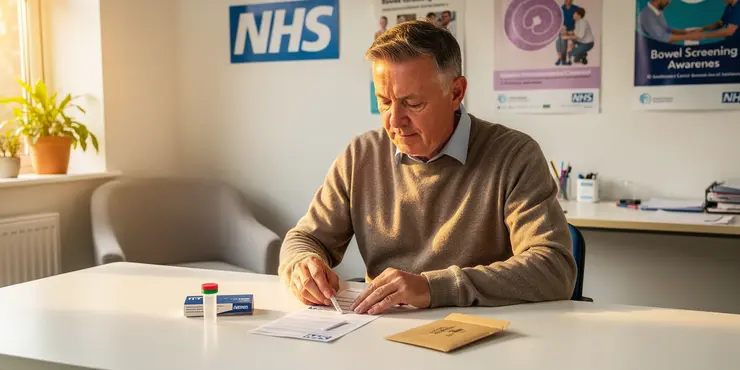
What are the recommendations for colorectal cancer screening?
Relevance: 64%
-
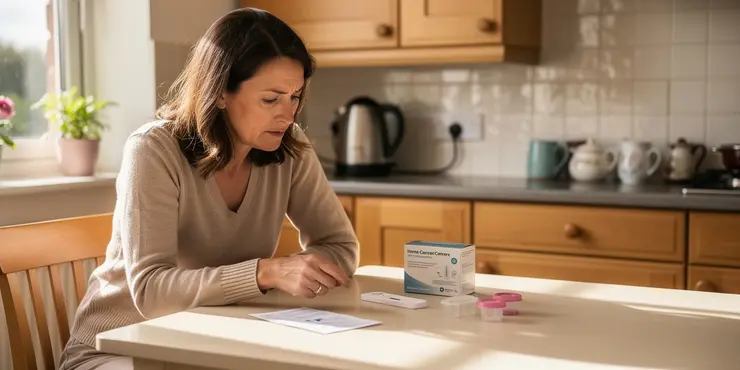
How often should I perform a home colorectal cancer test?
Relevance: 63%
-
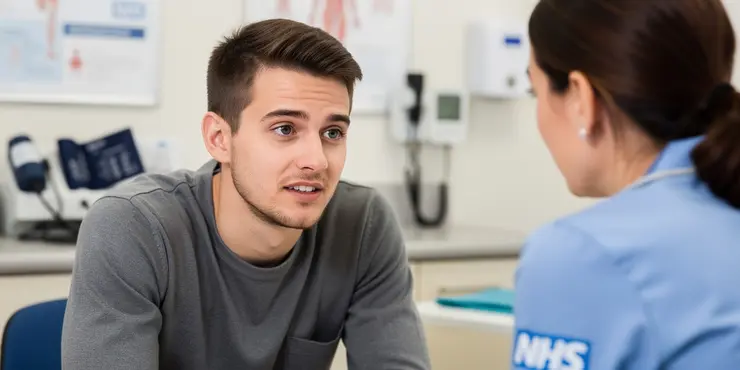
Can testicular cancer recur after treatment?
Relevance: 63%
-
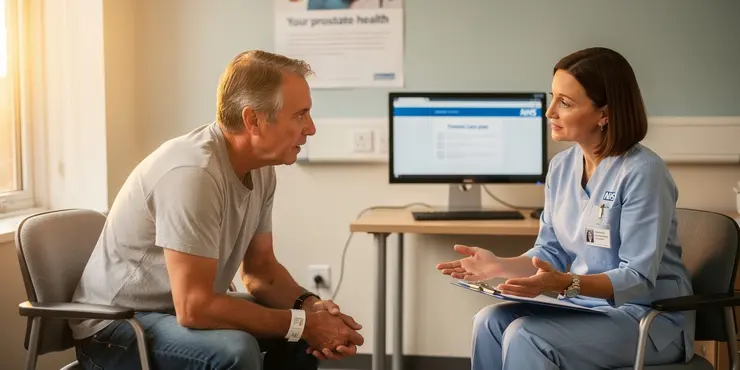
Treating prostate cancer
Relevance: 63%
-
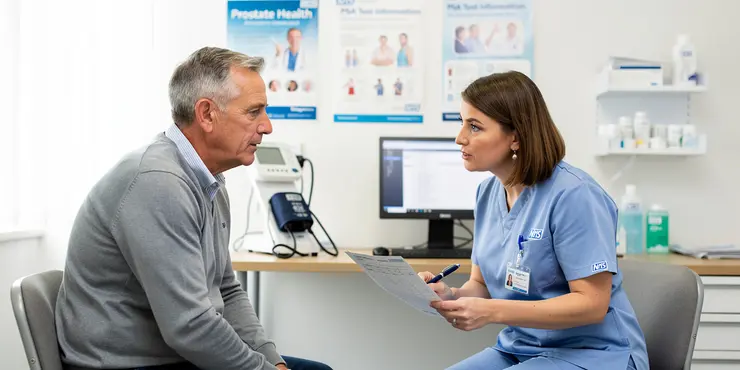
What are PSA levels? - Prostate Cancer
Relevance: 62%
What is blood cancer?
Blood cancer, also known as hematologic cancer or hematological malignancy, refers to cancers that affect the blood, bone marrow, or lymphatic system. These cancers typically originate in the bone marrow where blood cells are produced, and they can affect the production and function of blood cells.
There are three main types of blood cancer:
- Leukemia: Leukemia is a cancer of the blood and bone marrow, characterized by the overproduction of abnormal white blood cells. These abnormal cells crowd out healthy blood cells, leading to a decrease in the production of red blood cells (which carry oxygen), platelets (which help blood clot), and normal white blood cells (which are part of the immune system). Leukemia can be acute (develops rapidly) or chronic (develops more slowly).
- Lymphoma: Lymphoma is a cancer of the lymphatic system, which is part of the body's immune system. It occurs when lymphocytes, a type of white blood cell, become malignant and form tumors in the lymph nodes or other lymphatic tissues. There are two main types of lymphoma: Hodgkin lymphoma and non-Hodgkin lymphoma.
- Myeloma: Myeloma, also known as multiple myeloma, is a cancer of plasma cells, a type of white blood cell that produces antibodies. In myeloma, malignant plasma cells accumulate in the bone marrow and form tumors, which can lead to bone pain, anemia, weakened bones, and other complications.
Blood cancers can cause a variety of symptoms, including fatigue, weakness, fever, weight loss, frequent infections, easy bruising or bleeding, swollen lymph nodes, and bone pain. The specific symptoms depend on the type of blood cancer and its stage.
Treatment for blood cancer depends on the type of cancer, its stage, and other factors such as the patient's overall health. Common treatment options include chemotherapy, radiation therapy, targeted therapy, immunotherapy, stem cell transplantation, and sometimes surgery. The goal of treatment is often to destroy or control the cancer cells, alleviate symptoms, and improve the patient's quality of life.
4 Facts About Blood Cancer You Should Know | NHS
1. Types of Blood Cancer
Blood cancer, also known as hematologic cancer, primarily affects the production and function of blood cells. There are three main types: leukemia, lymphoma, and myeloma. Leukemia affects the blood and bone marrow. Lymphoma targets the lymphatic system, which is essential for the immune system. Myeloma affects plasma cells in the bone marrow. Each type has its own subtypes and can require different approaches to treatment. Understanding these types helps in recognizing symptoms and seeking timely medical advice.2. Common Symptoms to Look Out For
The symptoms of blood cancer can vary, but common signs include unexplained weight loss, frequent infections, fatigue, easy bruising or bleeding, and swollen lymph nodes. Night sweats, bone pain, and shortness of breath are also notable symptoms. Due to the similarities with more common and less severe illnesses, these symptoms can often be overlooked. Awareness and early detection are crucial for better prognosis and effective treatment, emphasizing the importance of consulting a healthcare professional if symptoms persist.3. Diagnosis and Treatment
Diagnosing blood cancer involves a variety of tests, including blood tests, bone marrow biopsies, lymph node biopsies, and imaging tests like CT or MRI scans. Treatment options vary based on the type and stage of blood cancer and may include chemotherapy, radiotherapy, targeted drug therapy, and stem cell transplantation. The NHS offers comprehensive care plans that involve a multidisciplinary approach, ensuring that patients receive tailored treatment and the necessary support throughout their journey.4. Advances in Research and Support
Significant advancements in medical research have improved survival rates and quality of life for blood cancer patients. Innovations in targeted therapies and immunotherapies have provided new hope, offering treatments that specifically target cancer cells while sparing healthy cells. The NHS, along with various charities and support groups in the UK, provide resources and support for patients and their families. Engaging with these organizations can offer emotional support, reliable information, and connections to others who are navigating similar challenges.What is blood cancer?
Blood cancer is a kind of illness that affects your blood and the parts of your body where blood is made. It mainly starts in the bone marrow. This is the soft part inside your bones where blood cells grow.
There are three main types of blood cancer:
- Leukemia: Leukemia is a cancer of the blood and bone marrow. It happens when the body makes too many white blood cells that are not normal. These bad cells take over and make it hard for your body to make normal blood cells, like red blood cells (which carry oxygen) and platelets (which help stop bleeding). Leukemia can grow quickly or more slowly.
- Lymphoma: Lymphoma is a cancer that affects your lymphatic system. This is a part of the body that helps fight off sickness. It happens when certain white blood cells called lymphocytes grow too much and form lumps, called tumors, in places like your neck or stomach. There are two main types: Hodgkin lymphoma and non-Hodgkin lymphoma.
- Myeloma: Myeloma, also called multiple myeloma, affects a special white blood cell that makes antibodies. When you have myeloma, these cells grow too much in the bone marrow. This can cause problems like bone pain and weak bones.
When someone has blood cancer, they might feel very tired, weak, have a fever, lose weight, get infections easily, bruise easily, or feel pain in their bones. The signs depend on which type of blood cancer it is and how far along it is.
Doctors treat blood cancer in different ways. What they choose depends on the type of cancer, how bad it is, and how healthy the person is. Common treatments include special medicines (like chemotherapy), radiation, therapies that target the cancer cells, treatments that help the immune system fight the cancer, stem cell transplants, and sometimes surgery. The aim is to get rid of or control the cancer, help with symptoms, and make the person feel better.
For help understanding or dealing with blood cancer, you can use tools like pictures to explain information, ask questions if something is unclear, and take breaks often to rest your mind.
4 Facts About Blood Cancer You Should Know | NHS
1. Types of Blood Cancer
Blood cancer is a type of sickness that affects how blood cells are made and work. There are three main kinds: leukemia, lymphoma, and myeloma. - Leukemia is a problem with the blood and bone marrow. - Lymphoma attacks a part of the body called the lymphatic system, which helps fight infections. - Myeloma affects plasma cells in the bone marrow. Each of these has different kinds and needs different treatments. Knowing about them helps us see symptoms early and get help from a doctor quickly.2. Common Symptoms to Look Out For
Signs that someone might have blood cancer include: - Losing weight without trying - Getting sick a lot - Feeling very tired - Bruising or bleeding easily - Swollen glands in the neck, armpit, or groin Other signs are sweating at night, pain in bones, and feeling short of breath. These symptoms can look like other minor sicknesses, so they are often missed. It's important to tell a doctor if these problems don't go away, so you can get the right help.3. Diagnosis and Treatment
To find out if someone has blood cancer, doctors do tests like: - Blood tests - Bone marrow tests - Checking the lymph nodes - Scans of the body (like CT or MRI scans) Treatments depend on what type of blood cancer it is and how bad it is. They might include: - Chemotherapy (using medicine to kill cancer cells) - Radiation therapy (using high-energy rays to kill cancer cells) - Targeted drug therapy (using drugs that target cancer cells) - Stem cell transplants (replacing damaged blood cells) Doctors and nurses make a special plan for each person to help them get better.4. Advances in Research and Support
New research has made it easier to live longer and feel better with blood cancer. New treatments can attack cancer cells while leaving healthy cells alone. If you need help, the NHS and charities in the UK offer support and information. They also have support groups where you can meet other families dealing with blood cancer. These services give emotional help and connect you with people who understand what you are going through.Frequently Asked Questions
What is blood cancer?
Blood cancer is a type of cancer that affects the blood, bone marrow, or lymphatic system. It includes conditions such as leukaemia, lymphoma, and myeloma.
How common is blood cancer?
Blood cancer is one of the most common types of cancer in the UK, with thousands of people diagnosed each year.
What are the symptoms of blood cancer?
Symptoms of blood cancer can include unexplained weight loss, fatigue, frequent infections, bruising or bleeding easily, and swollen lymph nodes.
What causes blood cancer?
The exact cause of blood cancer is not known, but it is believed to involve a combination of genetic and environmental factors.
How is blood cancer diagnosed?
Blood cancer is often diagnosed through blood tests, bone marrow tests, and imaging tests such as MRIs or CT scans.
Can blood cancer be treated?
Yes, blood cancer can be treated. Treatment options may include chemotherapy, radiation therapy, targeted therapy, and stem cell transplants.
What is the survival rate for blood cancer patients?
Survival rates for blood cancer vary depending on the type and stage of the cancer, as well as the patient's overall health. Advances in treatment have improved survival rates significantly in recent years.
Is blood cancer hereditary?
While most cases of blood cancer are not inherited, some types of blood cancer can have a genetic component and may run in families.
Can lifestyle choices affect the risk of developing blood cancer?
Certain lifestyle choices, such as smoking and exposure to chemicals, may increase the risk of developing blood cancer. However, not all risk factors are within an individual's control.
What types of blood cancer are there?
The main types of blood cancer include leukaemia, lymphoma, and myeloma. Each type affects different parts of the blood and bone marrow.
Can children get blood cancer?
Yes, children can get blood cancer. In fact, leukaemia is the most common type of cancer in children and teenagers.
What is the role of bone marrow in blood cancer?
Bone marrow produces blood cells. In blood cancer, abnormal blood cells can accumulate in the bone marrow and disrupt the production of normal blood cells.
What are the treatment side effects for blood cancer?
Treatment for blood cancer can have side effects such as fatigue, nausea, hair loss, increased risk of infection, and more, depending on the type of treatment used.
Are there support services available for blood cancer patients in the UK?
Yes, there are numerous support services in the UK, including counselling, support groups, and charities that provide information and assistance to blood cancer patients and their families.
How can I support someone with blood cancer?
You can support someone with blood cancer by offering emotional support, helping with daily tasks, and being informed about the condition and its treatments. Encouraging them to follow their treatment plan and providing a listening ear can also be very helpful.
What is blood cancer?
Blood cancer is a sickness. It starts in the blood. It stops blood from doing its job.
There are 3 main kinds of blood cancer:
- Leukemia: It makes too many white blood cells.
- Lymphoma: It harms the parts of the blood called lymph.
- Myeloma: It harms the cells in bones that make blood.
Doctors can help people with blood cancer. They use medicines and special treatments.
If you want to learn more, ask a doctor or look for books with big pictures.
Blood cancer is an illness that can make you very sick. It affects your blood, the soft tissue inside your bones (called bone marrow), or the part of your body that helps you fight germs (called the lymphatic system). There are different types of blood cancer like leukaemia, lymphoma, and myeloma.
How many people get blood cancer?
Blood cancer is a type of cancer that many people in the UK get. Each year, doctors find out that thousands of people have it.
What happens when you have blood cancer?
When someone has blood cancer, their body can show different signs. Here are some things to look out for:
- Feeling very tired all the time.
- Getting bruises easily or bleeding a lot.
- Having a fever or night sweats.
- Losing weight without trying.
- Feeling pain in bones or joints.
- Getting infections often.
- Feeling lumps in the neck, underarms, or groin.
If you or someone you know shows these signs, it is important to talk to a doctor. They can help find out what is wrong.
Helpful Tools: It can be useful to have someone read this with you or use a text-to-speech tool to listen to it. Drawing pictures or using a chart to show these signs can also help understand them better.
Signs of blood cancer can be:
- Losing weight without trying
- Feeling very tired
- Getting infections a lot
- Bruising or bleeding easily
- Swollen lumps in your body (like under your arms or in your neck)
If you need help understanding this, ask someone you trust, like a family member or teacher. You can also use a text-to-speech tool to listen to the information.
What makes people get blood cancer?
Blood cancer happens when there is something wrong with the way blood cells grow. This can be caused by changes in our genes. Genes are like tiny instructions inside our bodies that tell cells how to work.
Here are some things that might make blood cancer more likely:
- Being older
- Being around certain chemicals, like those in factories or cleaning products
- Getting a lot of X-rays
- Some family genes from parents
If you find this hard to read, you can try:
- Using a ruler or finger to follow the words
- Asking someone to read it with you
- Listening to the text on a computer or phone reader app
We don't know exactly what causes blood cancer. But we think it happens because of changes in your genes and things around you.
How do doctors find out if someone has blood cancer?
Doctors use tests to see if a person has blood cancer. They look at blood samples. They may also check bone marrow. This is the part inside your bones. It is where blood cells are made.
Here are some things that help:
- Get regular check-ups. This helps find problems early.
- Ask for help if you feel sick or weak. Tell a grown-up or a nurse.
- You can use tools like picture charts. These help you understand better.
Doctors test for blood cancer in different ways. They might take a blood test to check your blood. Sometimes, they might take a sample of bone marrow. This is the spongy stuff inside your bones. They also might use special pictures, like MRI or CT scans, to look inside your body.
Can doctors help if you have blood cancer?
Yes, doctors can help people with blood cancer. They use different medicines and treatments to make you feel better. Here are some ways they can help:
- Medicine: Doctors have medicines that fight cancer cells.
- Chemotherapy: This is strong medicine that can kill cancer cells.
- Radiation: This uses special rays to kill cancer cells.
- Bone Marrow Transplant: This is when doctors give you new healthy cells to help your body.
- Support: Nurses and doctors support you and your family. They explain things and help you understand what is happening.
If you or someone you know has blood cancer, it's important to see a doctor. They can make a plan to help you get better. You can also talk to a family member or friend to help you understand and feel supported. Remember, it's okay to ask questions if something is confusing.
Yes, doctors can help people with blood cancer. They can use medicines to treat it. Some treatments are:
- Special strong medicine called chemotherapy
- Powerful rays called radiation therapy
- Medicine that goes straight to the cancer cells called targeted therapy
- Putting new, healthy cells in the body called stem cell transplants
Sometimes, using pictures or videos can help you understand better. You can also ask family or friends to help explain things.
How many people get better from blood cancer?
Getting better from blood cancer can depend on different things.
If you know someone with blood cancer, talking to a doctor can help. They will have good information.
You can also use tools like pictures or videos to understand more about this.
How long people live with blood cancer can be different. It depends on the type of blood cancer and how bad it is. It also depends on how healthy the person is. New treatments have helped more people live longer in the past few years.
Can you get blood cancer from your parents?
Blood cancer means your blood is not healthy. Sometimes, it can run in families. This means if your parents or grandparents had blood cancer, you might get it too.
If you are worried, you can talk to a doctor. It is good to ask questions.
Using pictures can help you understand better. You can also watch videos about blood and how to stay healthy.
Most blood cancers are not passed down from parents. But some blood cancers can be. They might be more common in some families because of genes.
Do the things we do every day change the chances of getting blood cancer?
Some things we do can make it more likely for us to get blood cancer. Smoking and being around certain chemicals can be risky. But there are some things we can't change or control.
What are the different kinds of blood cancer?
Blood cancer means that blood cells in your body are not normal. There are different kinds.
- Leukemia: This is when the white blood cells grow too fast and aren't normal. They can't help fight germs.
- Lymphoma: This is when the lymph system gets cancer. The lymph system helps protect the body from sickness.
- Myeloma: This is cancer in the plasma cells. Plasma cells help make antibodies to fight germs.
If reading is hard, you can use a reading pen or text-to-speech app. These tools can read the words out loud to you. They can help understand better.
The main kinds of blood cancer are leukaemia, lymphoma, and myeloma. Each one affects different parts of the blood and the bone where blood is made.
Can kids have blood cancer?
Yes, kids can get blood cancer. Blood cancer is when the blood cells in the body do not work right.
It is not anyone's fault if a kid gets blood cancer. Doctors and nurses know how to help kids who have this.
If you have questions, you can talk to a doctor or a nurse. You can also ask someone you trust to help you understand.
Yes, kids can get blood cancer. The most common type of cancer in children and teenagers is called leukaemia.
What does bone marrow do in blood cancer?
Our bones make blood cells. Sometimes, if someone has blood cancer, bad blood cells can build up in the bones. This makes it hard for the bones to make good blood cells.
To help understand this, you can use pictures or ask someone to explain it with drawings. Reading out loud or using apps that read for you can also help.
What happens to your body when you take medicine for blood cancer?
When you take medicine for blood cancer, it can make you feel different.
Some things that can happen are:
- Feel tired a lot
- Feel sick in your tummy
- Lose your hair
- Have a sore mouth
- Have trouble fighting off germs
- Feel sad or worried
If you have questions or feel upset, talk to your doctor or nurse. They can help you feel better.
Blood cancer treatment can make you feel very tired. It might also make you feel sick to your stomach. Some people lose their hair. You might get sick more easily too. How you feel can depend on the type of treatment you get.
Can people with blood cancer in the UK get help?
If you have blood cancer, there is help for you.
You can talk to a doctor or nurse.
There are people you can call who will listen and help.
You can also join a group with other people who have blood cancer.
These people understand how you feel and can give you support.
Ask for help if you need it. You are not alone.
Yes, there is lots of help in the UK for people with blood cancer. People can talk to someone, join support groups, and ask charities for information and help. These services are for people with blood cancer and their families.
How can I help someone with blood cancer?
Blood cancer is a sickness that affects the blood. It can make people feel very tired and unwell. Here are some ways you can help:
Be There: Spend time with them. Listen to what they want to say. Sometimes, just being there is enough.
Help With Chores: Offer to do things like cooking meals, cleaning the house, or shopping for food. These can be hard for them to do.
Go to the Doctor: Offer to go with them to the doctor or hospital. It can be nice to have company, and you can help them remember what the doctor says.
Encourage Rest: Remind them to rest. Blood cancer can make people feel very tired. It's important to take breaks and rest often.
Learn Together: Read books or find videos about blood cancer together. Learning can help both of you understand more.
Use Simple Tools: Help them keep track of medicines or appointments using simple lists or a calendar. You can also use reminder apps on a phone.
Helping someone with blood cancer is about being kind and supportive. Every little thing can make a big difference.
You can help someone with blood cancer in a few ways. You can talk to them about their feelings and listen to what they want to say. You can also help them with everyday things like cooking or cleaning.
It is good to know a bit about blood cancer and how doctors treat it. This can help you understand what your friend or family member is going through.
Encourage them to follow what the doctor says and be there to listen if they need to talk. Just being there for them is really helpful.
Useful Links
This website offers general information and is not a substitute for professional advice.
Always seek guidance from qualified professionals.
If you have any medical concerns or need urgent help, contact a healthcare professional or emergency services immediately.
Some of this content was generated with AI assistance. We’ve done our best to keep it accurate, helpful, and human-friendly.
- Ergsy carfully checks the information in the videos we provide here.
- Videos shown by Youtube after a video has completed, have NOT been reviewed by ERGSY.
- To view, click the arrow in centre of video.
- Most of the videos you find here will have subtitles and/or closed captions available.
- You may need to turn these on, and choose your preferred language.
- Go to the video you'd like to watch.
- If closed captions (CC) are available, settings will be visible on the bottom right of the video player.
- To turn on Captions, click settings .
- To turn off Captions, click settings again.
More Items From Ergsy search
-

4 facts about blood cancer that you should know | NHS
Relevance: 100%
-

What is a fecal occult blood test?
Relevance: 80%
-

How is testicular cancer diagnosed?
Relevance: 74%
-
Blood Product Transfusions
Relevance: 73%
-

How is bowel cancer diagnosed?
Relevance: 73%
-
Why might someone need a blood transfusion?
Relevance: 73%
-

What are the stages of testicular cancer?
Relevance: 71%
-

What kinds of cancer screening are available?
Relevance: 71%
-
What are some common reasons blood transfusions are needed?
Relevance: 71%
-

What is Prostate Cancer?
Relevance: 70%
-

How does a fecal occult blood test (FOBT) work?
Relevance: 70%
-

Ovarian Cancer
Relevance: 70%
-

What is colorectal cancer?
Relevance: 69%
-

How can I test myself for colorectal cancer?
Relevance: 69%
-

Is Hepatitis B a risk in blood transfusions?
Relevance: 69%
-

How to do the FIT bowel cancer screening test | Cancer Research UK
Relevance: 69%
-

What is Bowel Cancer?
Relevance: 69%
-

What is Cancer?
Relevance: 68%
-

What is the difference between colon cancer and rectal cancer?
Relevance: 68%
-

What is Pancreatic Cancer?
Relevance: 68%
-

What is testicular cancer?
Relevance: 68%
-

Prostate cancer diagnosis and tests
Relevance: 67%
-

What is cancer screening?
Relevance: 67%
-

What is testicular cancer?
Relevance: 67%
-
What is testicular cancer?
Relevance: 67%
-

Is testicular cancer treatable?
Relevance: 66%
-

Blood Transfusion
Relevance: 66%
-

Living with prostate cancer
Relevance: 66%
-

How is the stage of bowel cancer determined?
Relevance: 66%
-
What is a blood transfusion?
Relevance: 66%
-

Raising awareness of ovarian cancer
Relevance: 65%
-

Bowel cancer - Symptoms and signs to look out for
Relevance: 65%
-

Endometrial Cancer
Relevance: 64%
-

Is BPH the same as prostate cancer?
Relevance: 64%
-
Are there risks associated with home colorectal cancer tests?
Relevance: 64%
-

What are the recommendations for colorectal cancer screening?
Relevance: 64%
-

How often should I perform a home colorectal cancer test?
Relevance: 63%
-

Can testicular cancer recur after treatment?
Relevance: 63%
-

Treating prostate cancer
Relevance: 63%
-

What are PSA levels? - Prostate Cancer
Relevance: 62%


